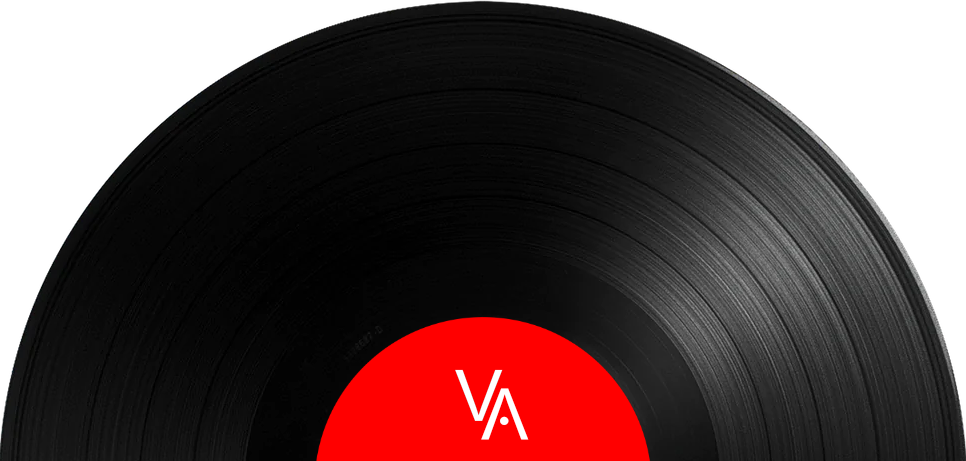
This is a record I sometimes play if I want to impress people with the sound quality of my stereo system. It is an incredible record - beyond incredible, really - and it’s hard to believe anything that sounds this good could have been recorded back in 1963. Straight off the floor, too. Live.
This is the Mobile Fidelity re-issue, meticulously remastered from the original analog masters. I also have a version of this LP on CD, which makes for a great A-B comparison if you want to get into the CD vs. LP discussion with someone after too many glasses of wine. And while the CD sounds good, this record is leaps and bounds beyond what the CD can deliver. This is one of those records that puts the musicians in the room, and if I close my eyes I see them sitting there. The instruments are well spaced, the sound is impeccable and the vinyl is very quiet. There's been other reissues since this one, including a 45-rpm Mobile Fidelity One Step, but they don't interest me. I collect 33-rpm recordings exclusively, and I try to find the best version possible. With this record, this is the pressing to get.
The LP opens with My Home Is In The Delta, which has the power to literally send shivers along your spine. It sounds that good! The rest of the album doesn’t disappoint, either - not one bum track anywhere - and it’s a record I love to put on the turntable on a regular basis. One listen to this slice of vinyl and you’ll understand why Muddy was so important to the blues.
Folk Singer is the fourth studio album released by Muddy Waters. It's on Chess Records and besides Muddy it features Willie Dixon on string bass, Clifton James on drums and Buddy Guy on acoustic guitar. It is Waters's only all-acoustic album.
It didn't chart in any country but it did receive considerable critical acclaim and was ranked number 280 on Rolling Stone's list of the 500 greatest albums of all time (later adjusted to number 282)
This record came about after Muddy appeared at the Newport Jazz Festival. Coming at the height of the mid-1960s folk music scene, Folk Singer's title - it was christened by Chess Records management - was a direct appeal to the followers of the folkie scene. Check this out, folkies! the bean counters at Chess seemed to be saying.
The recording took place at Tel Mar Recording Studios, in Chicago, in September, 1963. It was produced by Willie Dixon and the original vinyl release includes nine songs. One of the first CD versions of the record was released in 1993 by Mobile Fidelity and contained two bonus tracks, You Can't Lose What You Never Had and The Same Thing. The 1999 remastered CD version contains three additional bonus tracks: My John the Conqueror, Short Dress Woman and Put Me In Your Lay Away.
The supporting tour through Europe included an appearance at the second American Folk Blues Festival, a performance that was captured as part of a wonderful 5-CD box set of the same name, as well as dates in London, Belgium, Germany, France and Denmark.
Hard to believe, but when Down Beat magazine reviewed Folk Singer in 1964 it opined that Muddy's singing was forced and artificial. But this was balanced by Rolling Stone's 1993 review that stated "… there aren't too many blues albums that qualify as audiophile recordings, but Muddy Waters' Folk Singer surely does. A wonderfully intimate session, it delivers Waters' voice in all its power and subtlety, while rendering his guitar work with such vivid realism you would think you were sitting in the studio ... "
Nuff said.
If you're a blues aficionado, this record is …
This is a record I sometimes play if I want to impress people with the sound quality of my stereo system. It is an incredible record - beyond incredible, really - and it’s hard to believe anything that sounds this good could have been recorded back in 1963. Straight off the floor, too. Live.
This is the Mobile Fidelity re-issue, meticulously remastered from the original analog masters. I also have a version of this LP on CD, which makes for a great A-B comparison if you want to get into the CD vs. LP discussion with someone after too many glasses of wine. And while the CD sounds good, this record is leaps and bounds beyond what the CD can deliver. This is one of those records that puts the musicians in the room, and if I close my eyes I see them sitting there. The instruments are well spaced, the sound is impeccable and the vinyl is very quiet. There's been other reissues since this one, including a 45-rpm Mobile Fidelity One Step, but they don't interest me. I collect 33-rpm recordings exclusively, and I try to find the best version possible. With this record, this is the pressing to get.
The LP opens with My Home Is In The Delta, which has the power to literally send shivers along your spine. It sounds that good! The rest of the album doesn’t disappoint, either - not one bum track anywhere - and it’s a record I love to put on the turntable on a regular basis. One listen to this slice of vinyl and you’ll understand why Muddy was so important to the blues.
Folk Singer is the fourth studio album released by Muddy Waters. It's on Chess Records and besides Muddy it features Willie Dixon on string bass, Clifton James on drums and Buddy Guy on acoustic guitar. It is Waters's only all-acoustic album.
It didn't chart in any country but it did receive considerable critical acclaim and was ranked number 280 on Rolling Stone's list of the 500 greatest albums of all time (later adjusted to number 282)
This record came about after Muddy appeared at the Newport Jazz Festival. Coming at the height of the mid-1960s folk music scene, Folk Singer's title - it was christened by Chess Records management - was a direct appeal to the followers of the folkie scene. Check this out, folkies! the bean counters at Chess seemed to be saying.
The recording took place at Tel Mar Recording Studios, in Chicago, in September, 1963. It was produced by Willie Dixon and the original vinyl release includes nine songs. One of the first CD versions of the record was released in 1993 by Mobile Fidelity and contained two bonus tracks, You Can't Lose What You Never Had and The Same Thing. The 1999 remastered CD version contains three additional bonus tracks: My John the Conqueror, Short Dress Woman and Put Me In Your Lay Away.
The supporting tour through Europe included an appearance at the second American Folk Blues Festival, a performance that was captured as part of a wonderful 5-CD box set of the same name, as well as dates in London, Belgium, Germany, France and Denmark.
Hard to believe, but when Down Beat magazine reviewed Folk Singer in 1964 it opined that Muddy's singing was forced and artificial. But this was balanced by Rolling Stone's 1993 review that stated "… there aren't too many blues albums that qualify as audiophile recordings, but Muddy Waters' Folk Singer surely does. A wonderfully intimate session, it delivers Waters' voice in all its power and subtlety, while rendering his guitar work with such vivid realism you would think you were sitting in the studio ... "
Nuff said.
If you're a blues aficionado, this record is …



